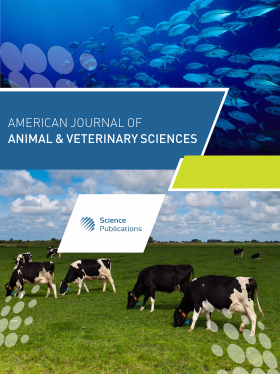Study on Mechanism of Ascites Syndrome of Broilers
- 1 Zhengzhou College of Animal Husbandry Engineering, China
- 2 Henan Agricultural University, China
Abstract
Two hundred and forty male Cobb broilers were used to study the reasons of causing ascites. The results showed that cold ambient temperature could induce ascites (33.89% vs. 2.50%) and significantly increase triiodothyronine (T3), but reduce thyroxine (T4) concentrations in plasma (p<0.05). The ascitic broilers had high concentrations of aldosterone and K+, but low concentrations of T3 and T4 in the plasma (p<0.05). The lower body weight and higher relative heart, lung and liver weight of the ascitic broilers demonstrated the metabolic disarrangement. When ascites occurred, hematocrit in blood increased significantly (p<0.05). The mash feed could reduce body weight and the onset of ascites, compared with the pellet feed.
DOI: https://doi.org/10.3844/ajavsp.2007.62.65

- 6,057 Views
- 5,907 Downloads
- 20 Citations
Download
Keywords
- Broilers
- ascites
- plasma
- biochemical indexes
- body weight and relative organ weigh
